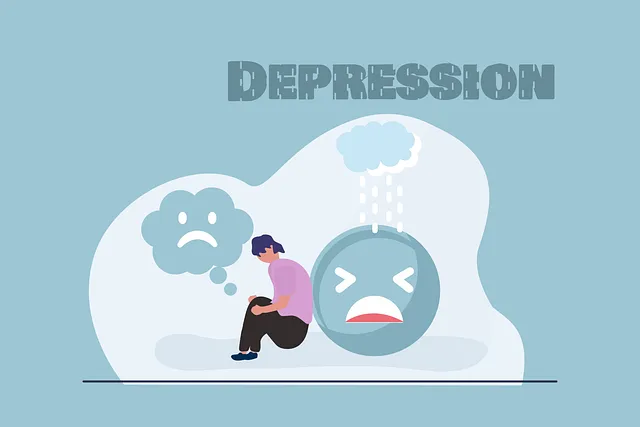Kaiser Mental Health Classes Castle Rock: Enhancing Social Skills for Recovery
Kaiser's mental health classes in Castle Rock provide a unique blend of therapeutic education a…….
In the pursuit of enhancing mental well-being and fostering resilient communities, innovative educational approaches have emerged, with one such notable example being the Kaiser mental health classes in Castle Rock. This article aims to dissect and explore the multifaceted aspects of this unique program, shedding light on its origins, impact, and potential for global application. By delving into its various facets, we will uncover how Kaiser mental health classes contribute to a comprehensive understanding of mental health education and its far-reaching implications.
Kaiser mental health classes in Castle Rock refer to a structured educational program designed to promote mental wellness and resilience among individuals within the community. The classes are based on evidence-based practices and draw from various disciplines, including psychology, psychiatry, and social work. Key components include:
The concept of mental health education has evolved over the decades, moving from stigmatization to a more holistic approach that recognizes its importance in daily life. Kaiser mental health classes emerged as a response to growing awareness about the impact of mental health issues on individuals and communities. In Castle Rock, these classes were initiated to address the specific needs of a diverse population, offering a tailored solution to promote mental wellness and reduce stigma.
Within the broader context, Kaiser mental health classes contribute to a global movement towards destigmatizing mental health and providing accessible support. They fit seamlessly into community-based interventions, school programs, and workplace initiatives aimed at improving overall well-being. By integrating these classes into local settings, Castle Rock has taken a proactive step towards ensuring mental health literacy and access for all its residents.
The Kaiser mental health class model has garnered international attention due to its adaptability and successful outcomes. Several countries have adopted and adapted this approach to suit their cultural contexts, demonstrating its potential for global replication. For instance:
The global mental health landscape is characterized by several trends that influence the development and direction of programs like Kaiser classes:
Different regions face unique challenges in mental health care, leading to variations in program implementation:
| Region | Challenges | Adaptation Strategies |
|—|—|—|
| Urban Areas | High demand, limited resources | Mobile clinics, community partnerships |
| Rural Communities | Limited access, cultural barriers | Culturally tailored programs, tele-health services |
| Developing Nations | Stigma, lack of infrastructure | Community-led initiatives, peer support networks |
The mental health sector is a significant portion of the global healthcare market, with increasing investments in innovative solutions. Kaiser mental health classes contribute to this landscape by:
Integrating Kaiser mental health classes into existing economic systems has several implications:
Technology has revolutionized mental health care, and Kaiser classes have not been immune to this transformation:
The future of technology in Kaiser mental health classes holds immense promise:
The development and delivery of Kaiser mental health classes are guided by various policies and regulations:
Policies shape the following aspects of Kaiser class implementation:
Despite its successes, the Kaiser mental health class model faces several challenges:
Addressing these issues requires strategic approaches:
In Castle Rock, the initial pilot program was met with remarkable success, leading to several key outcomes:
A similar initiative in a rural Australian town had these achievements:
In a multicultural Canadian city, adapting Kaiser classes to incorporate diverse cultural perspectives led to:
The future of Kaiser mental health classes holds immense potential in several areas:
Staying ahead of trends will be crucial for the continued relevance and effectiveness of Kaiser classes:
To ensure long-term success, organizers should:
Kaiser mental health classes in Castle Rock represent a significant step forward in the global pursuit of mental wellness education. Their success lies in combining evidence-based practices, cultural sensitivity, and community engagement. As the world navigates an increasingly complex mental health landscape, these classes offer a proven model for fostering resilience and reducing stigma. By addressing challenges and embracing technological advancements, there is immense potential for Kaiser-inspired programs to thrive worldwide, shaping healthier communities of the future.
Q: What makes Kaiser mental health classes unique?
A: Kaiser classes stand out for their comprehensive approach, combining psychological education, skill development, community support, and cultural sensitivity in a tailored program.
Q: Who is this program designed for?
A: These classes cater to individuals of all ages within the Castle Rock community, focusing on promoting mental wellness and resilience.
Q: How do these classes address stigma?
A: By fostering open discussions, sharing personal experiences, and normalizing conversations about mental health, Kaiser classes actively challenge stigma.
Q: Can Kaiser classes be adapted for different cultures?
A: Absolutely! The model is highly adaptable, allowing for cultural sensitivity and tailoring to diverse communities, as demonstrated in Canada’s example.
Q: What role does technology play in these programs?
A: Technology enhances accessibility, engagement, and scalability, with digital platforms, apps, and emerging VR/AR tools shaping the future of Kaiser classes.

Kaiser mental health classes in Castle Rock provide comprehensive stress management workshops design…….